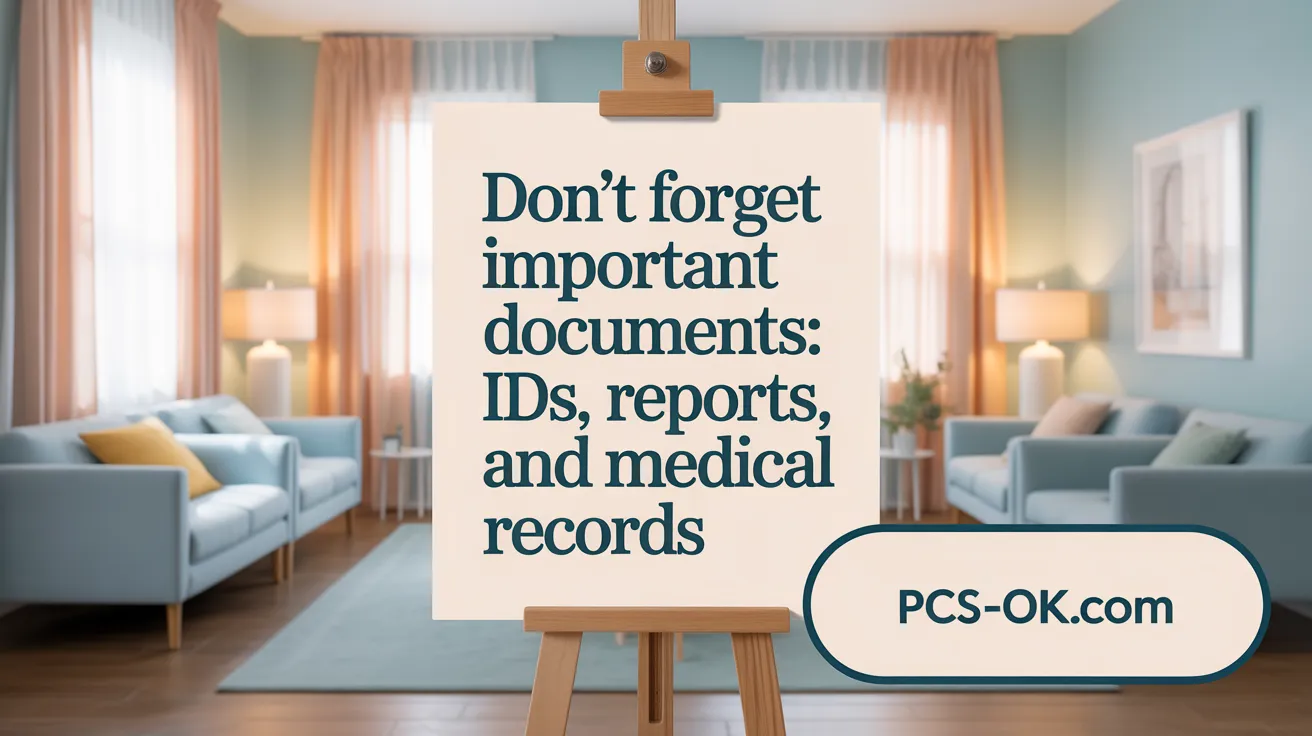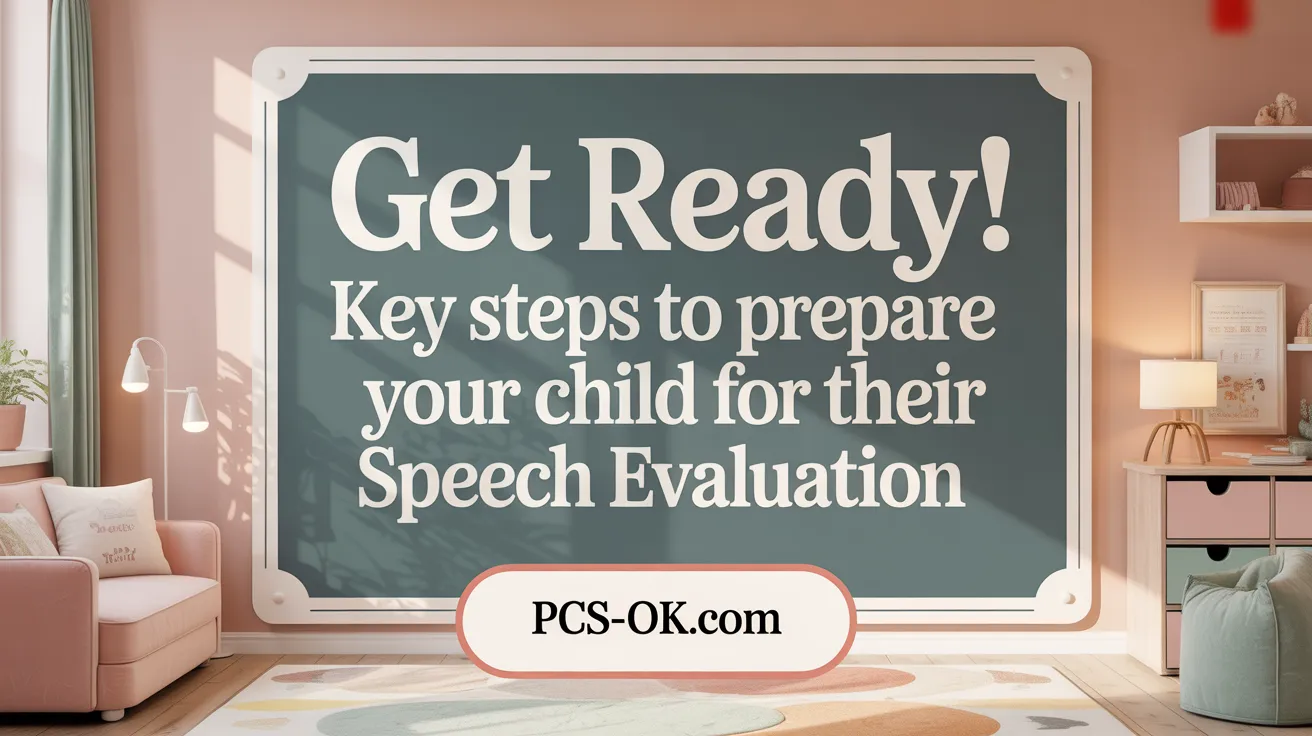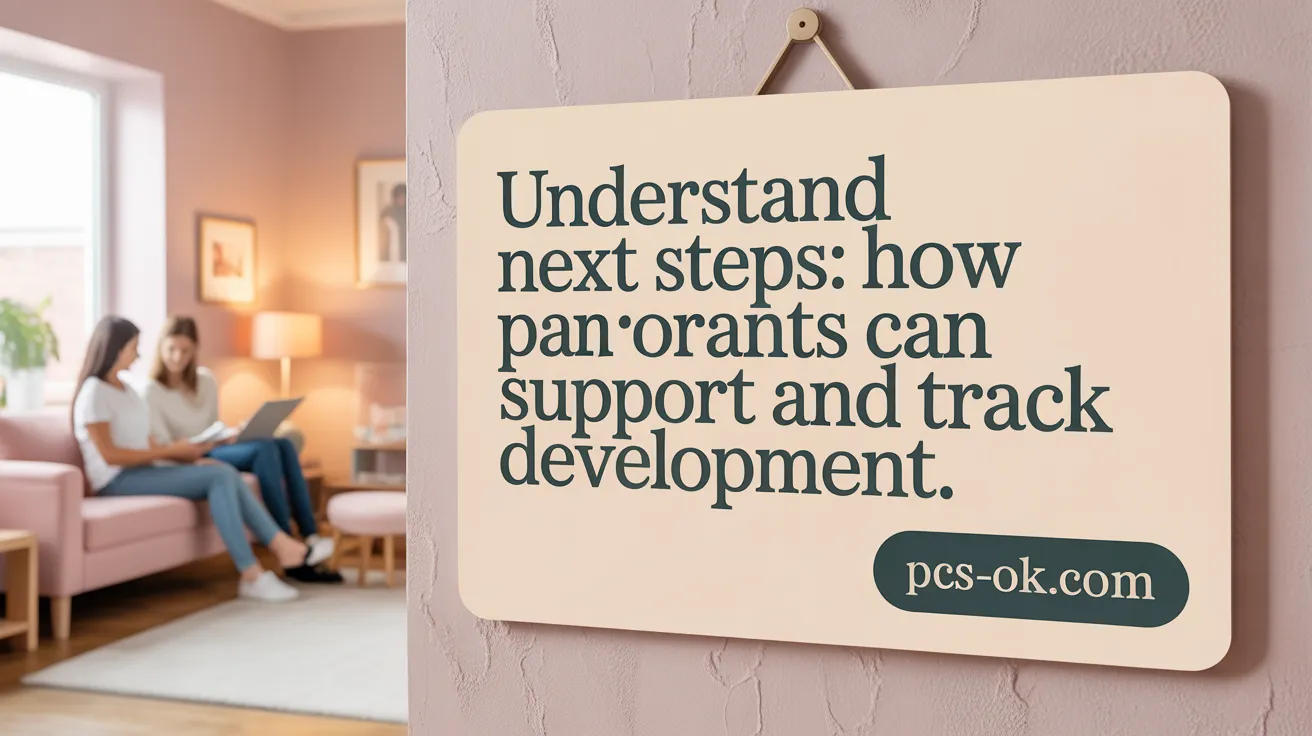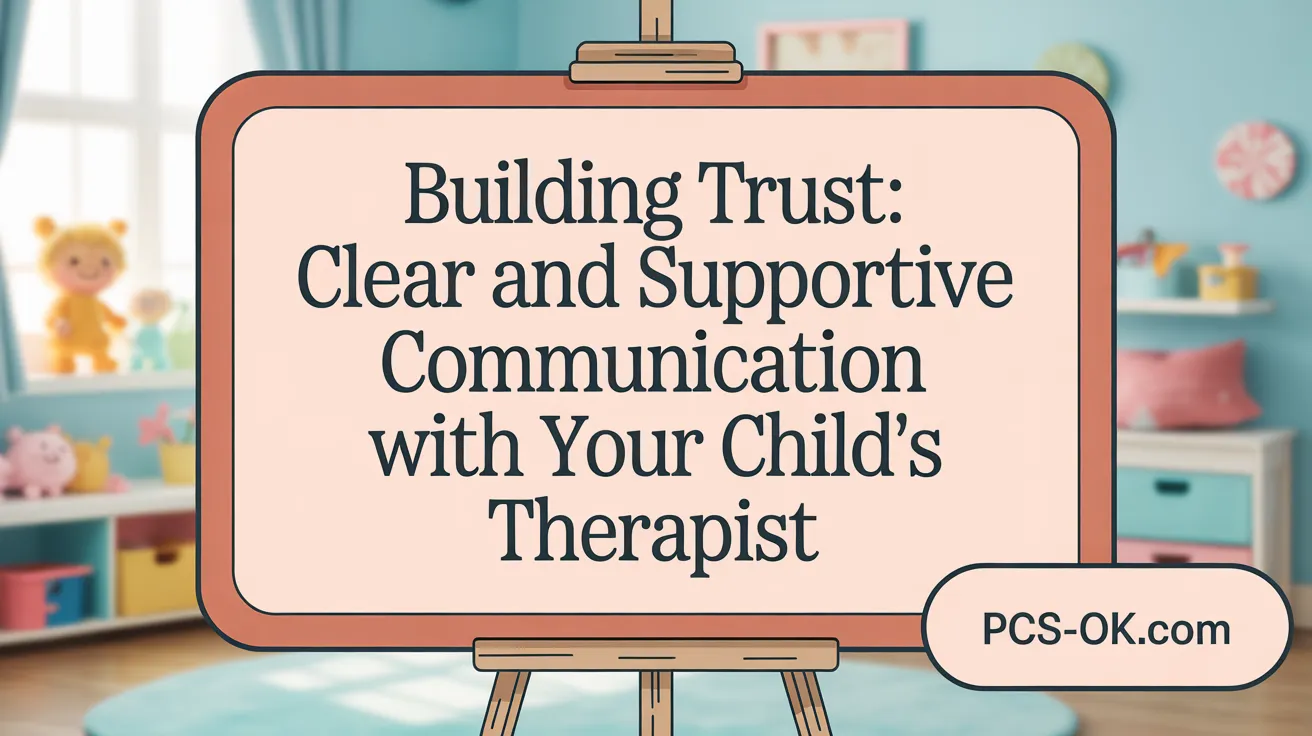What Parents Should Bring to a Speech Evaluation
Getting Ready for Your Child’s Speech Assessment
A speech evaluation is a crucial step in understanding and supporting your child’s communication development. Preparing effectively can make the process smoother and more beneficial. This article outlines what parents should bring to a speech evaluation, how to prepare, what happens during the assessment, and what to expect afterward, ensuring you’re fully equipped to advocate for your child’s needs.
Key Documents and Identification to Bring

When preparing for a child’s speech evaluation, parents should gather and bring several important items to ensure the process runs smoothly. First, a current photo ID, such as a driver’s license or passport, verifies parental identity. An insurance card is necessary to discuss coverage and facilitate billing. If available, bring a referral from the child’s pediatrician or primary care provider, along with any prescriptions that specify the purpose of the evaluation.
Educational reports like Individualized Education Programs (IEP) or Individualized Family Service Plans (IFSP) provide valuable background information about the child’s developmental and learning needs. Prior speech and medical evaluations can also offer insights into previous assessments or diagnoses. Medical history documents, including records of hospitalizations, surgeries, or ongoing health concerns, help the speech-language pathologist understand the child’s overall health context.
Parents should also compile contact information for report sharing if they wish to send the evaluation results to other providers or educators. Bringing any relevant previous reports or evaluations ensures the specialist has a comprehensive understanding of the child’s communication history.
What essential items should parents bring to a child’s speech evaluation?
- Previous speech or medical reports
- A list of developmental milestones, concerns, and questions
- Notebook for recording observations and notes
- Favorite toy or comfort item
- Recordings or work samples of speech or language, if available
- Educational or classroom assessments
- Contact information for report sharing
Having these items ready helps provide a complete picture of the child’s communication skills and supports a productive evaluation process. Remember, thorough preparation can make a significant difference in identifying the child’s needs and planning effective intervention strategies.
Familiar Comforts and Equipment for Your Child

What essential items should parents bring to a child’s speech evaluation?
Parents should come prepared with a variety of supportive items to ensure a smooth and effective assessment. It is important to bring any existing reports such as previous speech or medical evaluations, and a list of the child’s developmental milestones and specific concerns. These help guide the speech-language pathologist in understanding the child’s background.
Having a notebook or paper to jot down observations and questions during the session is also beneficial. Many children feel more relaxed when they have familiar objects, so bringing a favorite toy or comfort item can help keep the child calm and engaged. Snacks and drinks suitable for feeding or swallowing assessments are recommended to support the child’s comfort.
If available, parents can prepare recordings or samples of the child’s speech and language in real-life scenarios. This provides additional context beyond what can be observed during the evaluation. Lastly, including any recent educational or classroom reports, like progress notes or assessment summaries, helps the therapist get a comprehensive picture of the child’s communication skills.
Child’s regular equipment (eyeglasses, hearing aids, communication devices)
It’s vital for parents to bring equipment that their child normally uses, such as eyeglasses, hearing aids, or communication devices. These tools are essential for the therapist to accurately evaluate the child’s abilities and to determine if additional support is needed.
Comfort items like toys, snacks, and drinks
Children respond well when they are comfortable. Bringing familiar toys can facilitate interaction and cooperation. Small snacks and drinks are not only comforting but can also be used during the session if appropriate, especially in feeding or swallowing evaluations.
Appropriate clothing for evaluation
Children should wear comfortable, simple clothing, along with socks and shoes, to allow the speech therapist easy access to observe facial movements and mouth function during physical examinations.
Audio or video recordings of child’s speech
If parents have recordings of their child’s speech in natural settings, these can be very helpful. They provide additional examples of the child’s communication style and can inform the assessment process.
List of common sounds or words produced by child
Preparing a list of words or sounds your child frequently produces can aid the therapist in understanding their current speech capabilities and areas needing focus.
Below is a summary table of what parents should consider bringing to a child’s speech evaluation:
| Item or Equipment | Purpose | Additional Details |
|---|---|---|
| Previous reports and developmental milestones | Provide background information | Helps guide the assessment |
| Notebook or questions | Record observations and questions | Ensures concerns are addressed during the session |
| Favorite toy or comfort items | Keep child calm and engaged | Supports cooperation |
| Snacks and drinks | Maintain comfort and assist in feeding assessments | Suitable for the child’s dietary needs |
| Speech recordings or work samples | Show real-life speech and language use | Adds context beyond the session |
| Medical or educational reports | Offer a comprehensive understanding of child’s progress | Supports tailored assessment |
| Child’s equipment (glasses, hearing aids) | Ensure accurate evaluation of abilities | Used during physical and speech assessments |
Being well-prepared with these items can significantly enhance the evaluation experience and aid the speech therapist in making informed assessments and recommendations.
Understanding the Speech Evaluation Process and How to Prepare

What are the core components of a speech evaluation for children?
A comprehensive speech evaluation for children looks at several aspects of communication. The speech-language pathologist assesses how a child produces speech sounds, understands and uses language, and manages voice and fluency. During the evaluation, they use standardized tests like the Goldman-Fristoe Test of Articulation (GFTA) or the Preschool Language Scale (PLS) to obtain measurable data.
In addition to formal testing, therapists observe the child’s spontaneous speech, gestures, eye contact, social interactions, and play behaviors to get a complete picture. Developmental history, family background, health, and cultural factors are also considered. Sometimes, assessments of swallowing or oral structures are performed to identify underlying physical causes. At the end, the therapist provides a detailed report highlighting strengths, challenges, and tailored recommendations for intervention if necessary.
What preparation tips should parents follow before attending a speech evaluation?
Parents can significantly contribute by preparing ahead of the appointment. Observing and noting specific speech and language behaviors, concerns, and questions helps in providing useful information. Reviewing the child’s development, medical history, and past reports ensures that the therapist has accurate background data.
To reduce anxiety, explain the process to the child using simple, positive language, and consider visiting the clinic beforehand or role-playing to familiarize the child with what to expect. Ensuring the child is well-rested and comfortable on the day of the appointment helps with cooperation. Arriving early allows time for paperwork and settling in. Parents should also gather any relevant documents, such as previous evaluations or reports, and prepare a list of questions to discuss during the session.
What is the typical process and procedures involved in a child’s speech evaluation?
The process begins with an interview between the speech-language pathologist and the parents. During this discussion, they review the child’s medical, developmental, and educational history and address specific concerns.
Following the interview, the SLP conducts a series of assessments that may include standardized tests to evaluate speech clarity, language comprehension, and expressive skills. Informal assessments, such as observing the child during play or conversation, are also used to gauge social communication, gestures, and responses in natural settings.
The evaluator may examine the child’s face and mouth, and conduct hearing screenings if needed. Throughout the evaluation, cultural and linguistic considerations are taken into account to ensure accuracy. After completing all assessments, the SLP analyzes the results and develops a customized plan for therapy if indicated. They then discuss findings and next steps with the parents, including potential therapy goals and follow-up services.
What should parents expect during their child’s speech assessment?
Parents can anticipate a child-friendly, thorough assessment that might last up to two hours. The process includes the therapist observing the child’s speech production, listening comprehension, and social interaction skills.
The speech-language pathologist will interview parents to gather historical information and address their concerns. The child may be asked to follow directions, identify objects, or describe pictures using toys or pictures provided by the therapist. These activities help evaluate speech clarity, vocabulary, and understanding.
The therapist may also examine facial movements and oral structures and possibly perform hearing screenings. Throughout the session, goals for therapy are discussed, and progress markers are set. After the assessment, parents receive a report within three weeks that details findings and suggestions, which may include speech therapy services or additional evaluations.
Post-Evaluation Steps and Parental Involvement

How do parents receive and understand the evaluation report?
Parents will receive a written report within three weeks of the assessment, which may also be accessed online through a secure portal. The report includes detailed findings, scores, and recommendations.
It’s important for parents to review this document carefully. The report explains the child’s communication abilities, identifies areas of concern, and summarizes test results, often with visuals such as charts or score ranges (e.g., average scores span 85-115). Understanding these results helps parents grasp their child’s current skills and the potential impact on classroom and daily interactions.
What is discussed regarding diagnosis, strengths, and therapy recommendations?
During a follow-up session with the speech-language pathologist, parents will hear about the child’s developmental and communication history. The therapist discusses the findings, including whether a diagnosis has been made and highlights the child’s strengths.
If therapy is recommended, the clinician explains its duration, such as weekly sessions for up to six months or 24 total visits. The focus is on setting realistic, measurable goals tailored to the child’s needs, like improving speech clarity or expanding vocabulary.
How are goals for therapy set and tracked?
Goals are typically specific, observable, and achievable, such as correctly pronouncing a set of target words or following multi-step instructions. Therapists work with parents to prioritize areas for improvement.
Progress is tracked through ongoing assessments, therapy sessions, and parent feedback. Regular updates help adjust goals and strategies, ensuring that the child is supported effectively.
What are the follow-up plans and how can parents monitor progress?
Follow-up plans include scheduling regular therapy sessions, often twice weekly, and periodic reassessment to measure improvements. Communication with therapists keeps parents informed about progress.
Supporting the child’s development at home by practicing targeted activities, reinforcing communication skills, and maintaining consistency enhances therapy outcomes.
How do parents collaborate with therapists and community providers?
Effective collaboration involves sharing observations, attending therapy sessions, and participating in goal setting. Many clinics partner with local schools or community resources for continuity of care.
Parents can also seek guidance on integrating strategies into daily routines, fostering generalization of skills beyond therapy.
What is the parental role in reinforcing therapy at home?
Parents play a vital role by providing a supportive environment, using recommended activities, and modeling correct speech and language use. Reinforcing skills consistently helps solidify gains and encourages communication.
Engaging in play, reading, and everyday conversations tailored to the child’s interests supports ongoing development.
What questions should parents prepare for the speech therapist?
Parents should consider questions about the child’s prognosis, the length of therapy needed, specific strategies to implement at home, and resources available for additional support. Asking about how to handle setbacks or specific concerns increases understanding and confidence.
How open are professionals for post-report questions?
Most speech-language pathologists are available for follow-up discussions after reviewing the report. They welcome questions, clarifications, and ongoing communication to ensure parents feel informed and supported.
In summary, understanding and actively engaging in the follow-up process ensures the best outcomes for the child’s communication journey. Regular reassessment, collaboration, and reinforcement at home empower children to reach their full potential.
Effective Communication Between Professionals and Parents

How can professionals communicate effectively with parents during speech evaluations?
Clear, compassionate, and parent-friendly communication is essential during speech evaluations. Professionals should explain each part of the process in straightforward language, making sure parents understand what to expect and feel comfortable asking questions. It’s important to walk parents through the steps—from providing necessary documentation like IDs and medical reports to understanding the assessment procedures.
Using visuals, such as charts or diagrams, to clarify scores and test results can make complex information more accessible. For example, a simple chart showing how a child’s scores compare to the average range helps parents quickly grasp their child’s current skills.
Starting the conversation by highlighting the child’s strengths sets a positive tone. It reassures parents and helps frame the assessment as a tool to support their child’s growth.
Professionals should also connect the areas tested—such as speaking, following directions, and social interactions—to everyday activities. This makes results more meaningful and relatable for parents.
Encouraging questions and addressing concerns openly fosters a trusting relationship. Respect for parental feelings and decisions about intervention is crucial; professionals should listen empathetically and provide balanced information about available options.
Building a partnership involves involving parents in goal setting and suggesting home practices. When parents participate actively, it increases the likelihood of success and strengthens the support system around the child.
Overall, effective communication involves honesty, clarity, support, and collaboration. This approach empowers parents, making them confident partners in their child’s speech development journey.
| Communication Strategies | Examples | Benefits |
|---|---|---|
| Use simple, clear language | Explaining test scores as comparisons to age norms | Better understanding and reduced anxiety |
| Visual aids and charts | Graphs showing progress or score comparisons | Greater clarity and engagement |
| Highlight child’s strengths | Sharing positive observations first | Builds confidence and motivation |
| Relate assessments to daily life | Discussing how speech affects play and learning | Practical understanding |
| Encourage questions | Asking parents about their concerns | Fosters dialogue and trust |
| Respect parental feelings | Validating concerns and choices | Strengthens partnership |
| Involve in goal setting | Planning home activities together | Increases adherence to recommendations |
Effective communication isn’t just about sharing information; it’s about building a trusting relationship that supports the child’s ongoing development and the parent’s confidence in helping their child succeed.
Empowering Parents for Successful Speech Evaluations
By bringing essential documents and comfort items, preparing thoughtfully, understanding the evaluation process, engaging in follow-up care, and collaborating openly with speech-language pathologists, parents play a vital role in supporting their child’s communication development. Effective preparation and clear communication can make speech evaluations a positive, informative experience that paves the way for meaningful progress.
References
- Speech Evaluation: WHAT CAN I EXPECT DURING MY …
- Speech-Language Evaluations: What to Expect
- When Your Child Needs a Speech Therapy Evaluation …
- Explaining Speech Language Evaluations in Parent …
- What to Expect at a Speech Evaluation
- What Is a Speech Therapy Evaluation for Children and …
- How to Prepare for a Speech-Language Pathology Session
- How to Handle Reluctant Parents
- Assessment and Evaluation of Speech-Language …
